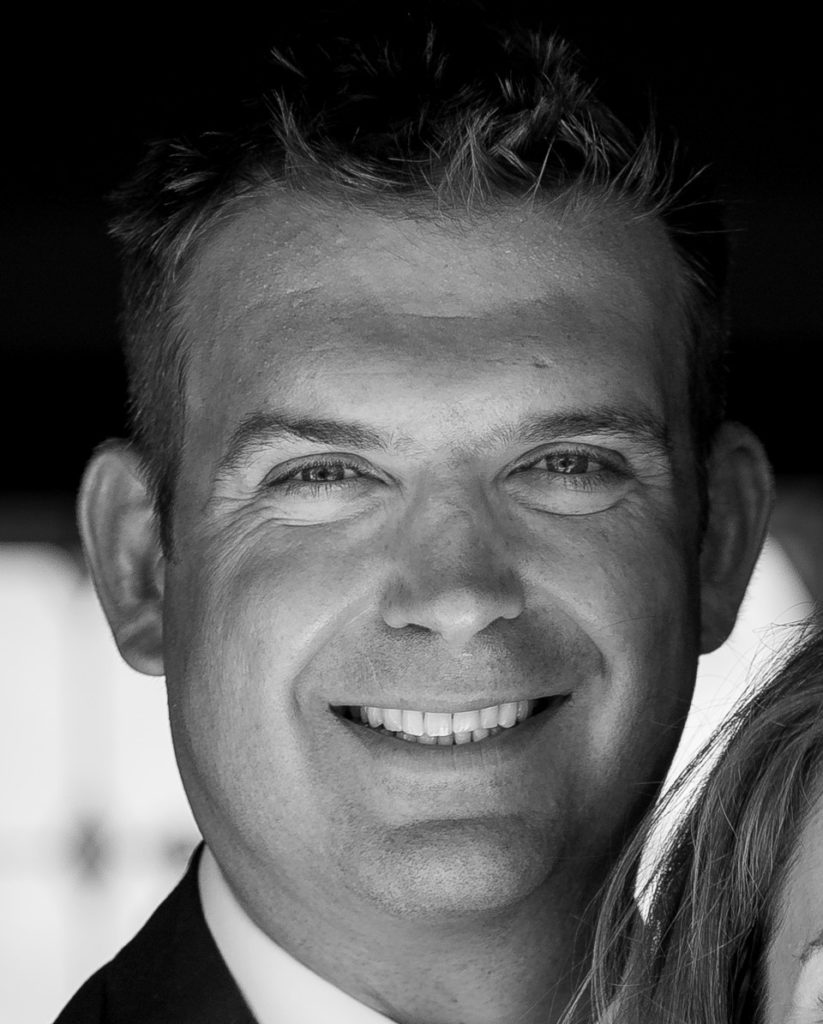As we look to the year ahead, industry experts share their thoughts on the opportunities and challenges facing the industry.
In part four we talk to marketing experts. In part one we heard from igaming operators and suppliers, in part two we covered land-based operators and suppliers and in part three we covered finance. In parts five to eight we will focus on people, technology and innovation, regulation and social responsibility.
Interviewees
Michael Daly, vice president North America, Catena Media
Clive Hawkswood, industry consultant and former CEO, Remote Gambling Association
Anika Howard, vice president brand marketing and digital, Foxwoods Resort Casino
Harry Lang, marketing director, Buzz Bingo
Looking back at 2020, what – other than the Covid-19 pandemic – did you feel was transformational for the industry? And how much of a lasting effect do you think the Covid-19 pandemic will have going forward?

Michael Daly: The transformational element in 2020, at least in the US gambling space, was the recognition by the old guard of the importance and value of the online portion of the gambling business. Since it came into existence in New Jersey eight or so years ago, despite outperforming in many states and sectors, it has always been treated as the red-headed stepchild of the land-based industry. 2020 has been the year these online businesses stood apart – sometimes alone due to pandemic restrictions – from that traditional segment and have shown they can bring great value. And that it is a stronger entity which has both online and land-based, not a weaker one. I think that recognition will be a lasting effect and will change how companies think about their gambling business going forward.
Clive Hawkswood: I don’t think there was anything truly transformational. Understandably, most issues have taken a back seat to Covid-19. Although it’s way too early to have any certainty about what the long-term effects will be, it could accelerate the move from land-based to online gambling, especially if it leads to a reduction in the number of land-based venues.
Anika Howard: 2020 validated the statement “necessity is the mother of invention”. The Covid-19 pandemic forced a global revaluation of the way we live, think, socialise and work. Adversity gave way to creativity and innovation as we adapted and found new ways to connect. Even with vaccines becoming widely available, it will take time for the gaming industry to bounce back to what it was pre-Covid-19. Many changes will have a lasting impact and are here to stay. For one, the remote work culture is here to stay – this is a major shift in gaming.
Agency partners and back of house functions created new and more streamlined ways to function when faced with challenges. Another key change is that online consumption doubled in 2020 as consumers absorbed a record amount of digital content from social media and streaming platforms. Digital, igaming and interactive will remain in the forefront, making content marketing and finding inventive ways to connect with guests even more critical.
Harry Lang: First of all, it’s pretty hard to discount a global pandemic from any assessment of 2020. That said, the rapid progression of the US market was exciting and a little unnerving in equal measure. You would have thought that the states’ regulators would have looked at 15 years of lessons in regulated European markets post UIGEA and learned some lessons about responsible gaming, marketing legislation and player protection, but some of the noise I’ve heard trickling back over the Atlantic still suggests it’s a big old bun fight, so I hope the larger operators step in to regulate themselves and the market before more draconian laws are required.
Post Covid-19 everywhere else, there seems to have been a significant “keep calm and carry on” mentality across the industry, but it’s been hugely disruptive, with significant job losses and furlough schemes affecting a huge number of people. I hope that everything can get back to normal as soon as possible.
What do you feel is going to be a game-changer for the industry in the coming year?
MD: Marketing and the digital space is about customisation for the individual, as shown in other sectors. AI will likely be what we see employed to this end. So it is really evolutionary vs revolutionary since we will be copying what other industries have led on, but, outside of journalism, plagiarism is a form of flattery.

CH: Unoriginally, I’d have to say the UK government’s review of the gambling laws and, notably, whatever proposals arise in a white paper or something like it later in the year following the call for evidence. If there is sufficient pressure as a result of the ensuing public debate, then the ASA and the Gambling Commission could well introduce additional restrictions in advance of any change to the gambling laws. Likewise, the Betting and Gaming Council (BGC), which in reality holds the pen on the Industry Code for Socially Responsible Advertising, could unilaterally introduce fresh restrictions. On recent experience, that could manifest itself in areas like sponsorship, broadcast advertising and social media.
The BGC describes itself as a standards raising body and given the prominence of advertising in the wider debate about gambling and its accessibility, it would not be unreasonable for it to consider fresh measures. The truth is that there is now such momentum behind the reformers, both inside and outside of Parliament, that something has to give. It is not a question of whether, it is a question of what, but it will take substantial changes to satisfy them. Although it’s too early to say what the game-changers will be as a result of this, it seems inevitable that there will be some and everyone in the marketing sector should stand ready to fight their corner.
AH: 2020 was a record year for igaming and sports betting revenue and this will continue. All signs point to 2021 being the year online sports betting and mobile gaming really take off. The convenience of gaming and gambling from a mobile device will continue to grow in popularity as legislation continues to be passed and state governments continue to see revenues increase as a result of online sports betting and mobile gaming. US sports betting has the opportunity to expand to the larger predictions markets that are popular in other countries. We saw the potential when sports were cancelled due to Covid-19. From betting on esports to betting on award shows, reality TV and elections, our imagination can lead to some very interesting experiences for bettors.
We will also see market consolidation as land-based operators look to capitalise on this trend and acquire suppliers to bring the full ecosystem in-house. It’s imperative for gaming marketers to keep a pulse on how developments in this sector will affect the gaming industry as a whole. It will create very unique marketing and partnership opportunities as this becomes a more integrated part of the overall gaming experience.
HL: For us at Buzz Bingo the opportunity in omnichannel is not only appealing for the all-encompassing entertainment experience it can offer our players, but also because so few operators have the retail estate to be able to compete. I think the lines between land-based and digital will become increasingly blurred and in that new amalgamated space all sorts of innovations are going to blossom. It’s hugely exciting.
On the other hand, what do you feel could disrupt the sector or slow progress?
MD: The fallout of Covid-19 on the global economic scale could be good for progress of new markets and states developing, but could also lead to more restrictive marketing regulations as politicians during tough economic times try to “protect” their constituents from the businesses they want to allow for “others” to spend in. We see this in some countries where only the tourists can gamble but not the locals. These kind of restrictive laws/regulations always do more harm than good in creating a healthy industry.
CH: There will be fundamental challenges to industry staples like television advertising. That can safely be taken as read and at a headline level it could threaten all types of gambling advertising before the 9pm watershed. In that event it would hit bingo and betting, with the former feeling the biggest impact. Children and gambling, and children and gambling marketing will be front and centre in many of the debates. A lot of mud will be thrown around and some of it will stick. More generally, nothing will be off the table and so in principle everything could be at risk. Every existing marketing model will come under scrutiny.
One example that springs to mind is the affiliate revenue share model. It has already been raised in the House of Lords and depicted as something that incentivises affiliates to benefit indefinitely from the losses of gambling “addicts”. It’s a distorted view of an arrangement that has long been part of the backbone of relationships between operators and affiliates, but views and opinions rather than hard evidence frequently determine how parliamentarians vote.
AH: Entertainment and larger promotions and events will be slower to return to pre-Covid levels. Virtual events will need to evolve and become more engaging and interactive. Instead of one-way communication vehicles, more companies will experiment with formats that blend live interactions, augmented reality and digital content.

HL: The restrictions on VIP programmes and the need to see proof of funds is a massive change and one that makes engaging with higher value customers much more difficult. That said, I’ve always maintained that if there is a level playing field, this industry is home to some very innovative marketers so as new legislation comes in, we simply move with the times. It seems likely that strong brands, excellent products, rich content and creative marketing communications will be the differentiators that set the winners apart from the losers moving forward.
With industry marketing increasingly under the spotlight, what channels do you consider the most sustainable and stable?
MD: As an affiliate, I have to say organic search traffic is the most sustainable and stable. Other forms of marketing, from pay-per-click (PPC) advertising to pop-ups, etc., are all unstable in my view. PPC rates vary widely and search engines will mix things up in order to drive us to use those tools. At the same time, all of those may be limited by search engine privacy tools. Organic search is based on “the will of the people” and their interest in learning about gambling content and operators. That is not going anywhere.
CH: We can be sure that broadcast advertising and social media marketing will be the two areas under most scrutiny so, by a process of elimination, the safest channels will be what might be described as traditional online and print media.

AH: Social and digital media, both paid and organic, are the most effective and sustainable outlets for relationship building with our potential and existing guests. We’ve embraced these channels. We challenge ourselves to meet the needs and desires of our audience, when, where, and how they want to be reached, with the ultimate goal of creating a lasting impression and authentic line of communication. Social and digital analytics and listening tools are the best way to understand customer and brand sentiment, market trends and future opportunities.
HL: If you want to build brands, TV remains hard to beat. If you want to drive acquisition with low CPAs, SEO and ASO are still the benchmarks. Neither is easy to get right, but both are worth the time and cash investment in the long term.
Image: Pixabay
